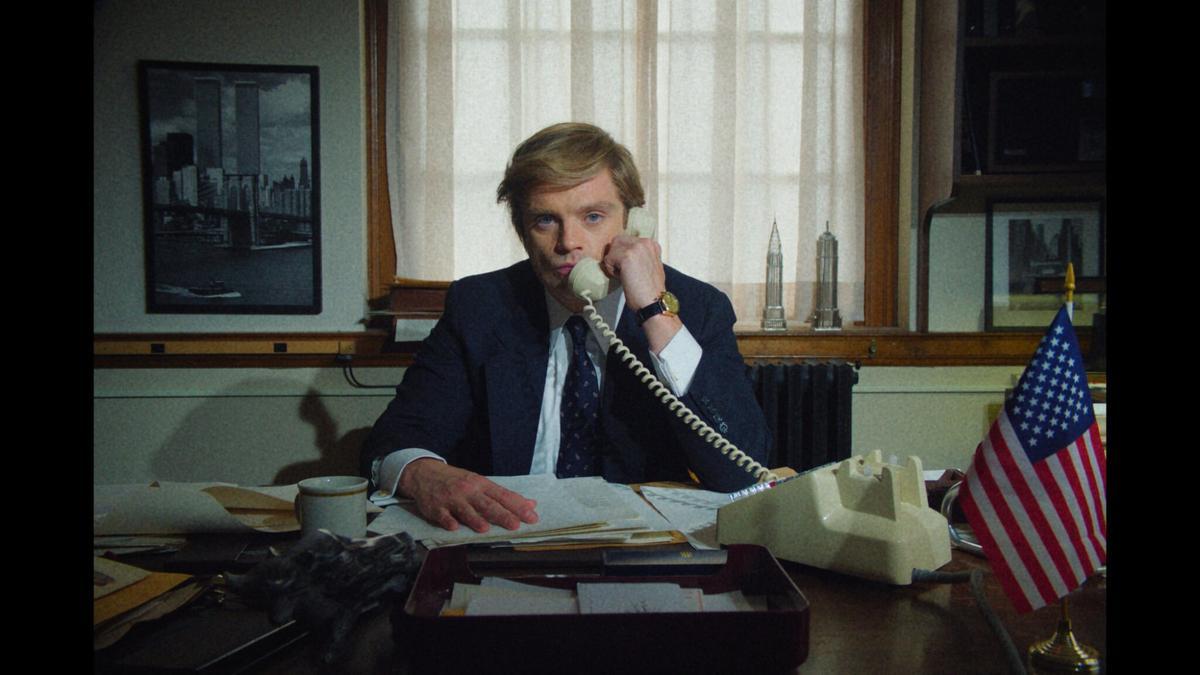
The notorious depiction of Donald Trump’s early days as a real estate tycoon in “The Apprentice” continues to stir conversations and legal threats alike. Ali Abbasi’s biopic, featuring Sebastian Stan in the titular role, casts a critical eye on Trump, portraying him so negatively that it has elicited fiery threats from Trump’s camp, almost as if they’re ready to take Hollywood by storm. Even garnering a standing ovation at the prestigious Cannes Film Festival hasn’t quelled the concerns of the former president, prompting him to deploy his legal team with cease-and-desist orders, a testament to their vigorous defense of his image.
Yet, the grand question remains: Is parody even impactful when the subject is Donald Trump? As we find ourselves in 2024, can one truly satirize an individual who seemingly turned his existence into an endless satirical act? The art form appears to have met its ultimate challenge in a man who has crafted his life into a carnival of chaos, often substituting bombast for absurdity. In doing so, Trump exceeds the realm of fictionalized satire as depicted in shows like “Veep” or “Succession.”
Satire’s core function is to ridicule, to hold a mirror to power and expose its absurdities. However, during the Trump era, satire often falls short, not from lack of effort, but because it struggles to surpass reality. Trump emerges as a quintessential post-satire persona, his blend of braggadocio and reality TV antics forming a character that seemingly defies the standard methods of ridicule. It’s a Herculean task to parody a narcissist who already embodies a self-caricature. Therefore, “The Apprentice,” designed to highlight and amplify Trump’s shortcomings for dramatic purposes, risks failing—not because the film lacks artistic merit, but because its focal subject is inherently a walking punchline. What’s the point of lampooning someone whose peculiar brand of absurdity outruns anything fictional writers can concoct?
In previous eras, figures like Jon Stewart and Stephen Colbert effectively turned satire into a third rail for the politically inclined youth, sharply skewering administrations with incisive wit. Their critiques of adversaries from the Bush era felt like genuine efforts to puncture political façades. However, Trump thrives on disruption and disorder. Attempting to engage in political satire in the current American cinematic landscape, particularly when addressing figures akin to Trump, feels less like a triumph and more a reluctant admission of defeat. These efforts appear feckless, echoing norms Trump has long unraveled. Director Adam McKay’s cinematic satirical efforts, evident in works like “Don’t Look Up” and “Vice,” have drawn criticism for leaning too heavily on their message. Perhaps subtlety no longer works in a world where blatant absurdity prevails.
An illustration of this absurdity is evident in Trump’s relentless stream of tweets, wherein he effortlessly outmaneuvered his satirists with each post.
. Whether it was the infamous “covfefe” blunder, or his juvenile taunts directed at political rivals like “Crooked Hillary” and “Sleepy Joe,” or even his audacious defiance of death with triumphant antics, Trump’s self-parody reached such peaks that comedians found it difficult to keep pace. They no longer needed to exaggerate; they merely echoed his rhetoric verbatim. It’s no surprise that “Saturday Night Live” resorted to using verbatim quotes from his speeches in their sketches. The task of parodying the former president was redundant, as Trump often handled the heavy lifting himself.
This illuminates a dilemma faced by satirists in the Trump era: how does one realistically parody someone entrenched in his “plans,” effectively making satire appear futile? Even Alec Baldwin’s acclaimed portrayal on “SNL” eventually dulled in impact as Trump’s tenure lingered. Trump seemed unfazed by these impersonations, brandishing them like medals, folding them into his own narrative of media victimhood.
This situation reveals that the potency of satire appears diminished when confronting Trump’s enormous persona. Satire, when applied to him, no longer possesses its subversive edge. Instead of challenging his credibility, it tends to contribute to the mythos surrounding him, reinforcing his sense of invulnerability.
In contrast, Indian cinema’s approach to political satire does not cut through the political elite with similar precision. Films frequently serve as vehicles for hero-worship or melodrama, with outright political ridicule being scarce. While Bollywood occasionally wades into the satirical waters, the deeply ingrained culture of veneration towards political figures renders attempting satire both unprofitable and fraught with peril. Indian politicians typically maintain mythic, invulnerable personas, leaving little opportunity for cinema to poke fun without courting controversy or censorship.
Gone are the days when films like “The Dictator” or mockumentaries like “The Interview” set the standard for political satire. The genre must evolve, but how remains an open question. As “The Apprentice” hits theaters, the film may provoke more debate than answers regarding satire’s role in narrating larger-than-life personas. Trump has long demonstrated an immunity to satire, his adeptness at transforming criticism into spectacle only solidifying his brand. To the ultimate showman, that might be the most perilous punchline of all.












